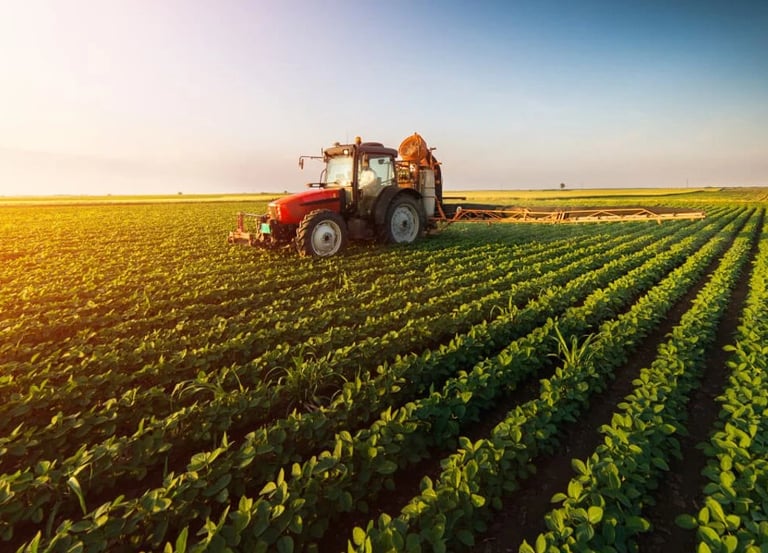
AGRICULTURAL PRODUCT CERTIFICATION
Agricultural product certification is a certification process that demonstrates that agricultural products meet specific quality standards, safety criteria, and legal requirements. This process ensures that products are monitored in a controlled manner during the production, processing, storage, and marketing stages. Certification aims to increase the reliability and competitiveness of products in both domestic and international markets.
Objectives of Agricultural Product Certification
Ensuring Food Safety: Guarantees that products are produced and processed in a way that does not harm consumer health.
Meeting Quality Standards: Verifies that products comply with specific national and international standards.
Ensuring Traceability: Enables the tracking of the product's source and production processes.
Protecting the Environment: Promotes sustainable and environmentally friendly practices in agricultural activities.
Consumer Confidence: Certified products are perceived as more reliable and preferable by consumers.
Types of Agricultural Product Certification
Organic Farming Certificate:
Granted to products produced without the use of chemical fertilizers, pesticides, and synthetic additives.
It is a certificate that documents the compliance of organic products with national and international standards.
Good Agricultural Practices (GAP):
A certificate given for agricultural production activities that meet the criteria of human health, environmental protection, and animal welfare.
Supported by the Ministry of Agriculture and Forestry in Turkey.
Geographical Indication Registration:
Protects agricultural products that have characteristics specific to a particular region.
For example, products such as "Aydın Figs" or "Antep Pistachios" are registered under this scope.
GlobalGAP Certificate:
GlobalGAP, an international standard, is a certificate that documents the safety and sustainability of agricultural products.
It is particularly important for export.
GMO-Free Product Certificate:
A certificate given to products that do not contain genetically modified organisms (GMOs).
Allows consumers to know that products are natural.
ISO Certificates:
International certificates that verify the compliance of agricultural products with criteria such as quality, environmental management, and food safety.
For example, ISO 22000 (Food Safety Management System).
Halal Certificate:
Indicates that agricultural products are produced and processed in accordance with Islamic rules.
Sustainable Agriculture Certificates:
Certificates such as Rainforest Alliance or Fair Trade focus on environmental sustainability and social responsibility.


Advantages of Agricultural Product Certification
Marketing and Competitiveness: Certified products are more preferred in local and international markets.
Consumer Confidence: Certification guarantees consumers that the products are reliable and of high quality.
Ease of Export: International certificates, especially GlobalGAP and ISO, provide a significant advantage in export.
Government Incentives: In Turkey, businesses that produce certified products under organic farming or good agricultural practices can benefit from government support.
The Importance of Agricultural Certification
Healthy Products: Certification aims to provide consumers with safe and healthy agricultural products.
Sustainability: It promotes environmentally friendly farming methods, ensuring the protection of natural resources.
Economic Contribution: Certification increases the market value of products and provides economic benefits to producers.
Agricultural product certification is a critical mechanism to ensure quality and safety in all processes from production to consumption.
Contact Us to Begin Your Agricultural Product Certification Process.
We offer affordable and effective solutions tailored to your needs.
The information presented on this website does not constitute legal advice and is intended for informational purposes only. KompassEurope.com.tr assumes no responsibility for any errors or omissions in the information contained on this website. Any decisions made or actions taken by the reader based on this information are solely at the reader's own risk, and KompassEurope.com.tr shall not be held liable for any legal consequences arising from such decisions or actions. Readers are strongly advised to seek professional legal counsel regarding their specific circumstances and concerns.
© 2025 Kompass Europe. All rights reserved. The contents of this website belong to Kompass Europe and are protected by copyright laws. Copying, publishing, distributing or any commercial use of the information on the website is possible only with written permission. By using this site, you agree to our Terms of Use and Privacy Policy.
